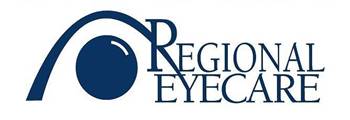Dr. Andrew Toebben Answers Your Questions About Pediatric Eye Care
1) From what age should a parent be bringing in their children for an eye exam?
According to the American Optometric Association, eye exams are recommended at 6 months, 3 years, and before first grade.
2) Why is it important to bring a child in at such a young age?
80 percent of what children are expected to learn in and outside the classroom requires good vision. Early detection is very important in the management of vision issues such as amblyopia (or lazy eye) and other eye conditions.
3) What is the difference in terms of the examination process when you are checking the eyes of young children?
Many of the tests we perform on young children focus on the child’s ability to use both eyes together and determining if there is a large difference in prescription between the two eyes. We concentrate on eye alignment, movement, and focusing abilities. Most of the tests used with children are objective, which does not require a response from the child in order to get the information needed.
4) Are there any signs that parents should be looking out for that would point them to making an appointment with their optometrist?
Abnormal eye alignment – eye turns inward or outward while the other is looking straight ahead. Excessive blinking or squinting, frequent eye rubbing, and poor eye tracking skills are also reasons to make an appointment.
5) Do you find that some parents can express hesitancy in bringing in young children? What causes that hesitation?
I see that occasionally. I think some parents aren’t sure how we would be able to examine their child’s eyes at such a young age.
6) How does school play a role in this?
Many schools have vision screenings for children where they can check the child’s acuity, and if failed, they will recommend an eye exam. These can be helpful in catching children that need prescription glasses.
7) Do you have issues with children that are shy or intimidated in the office, and how do you work with that?
Some children are shy, especially during their first eye exam. I try to treat the exam like a game and make it as fun and light-hearted as possible.
8) Can you recall any particular story of a child that came into your office, in which you were able to detect an issue early on and therefore make a difference in that child’s eye health?
Not one case specifically. But finding a child that needs glasses and then seeing how they react when they first put them on is a great feeling.
9) Any further comments specific to pediatric care that parents should be aware of?
Early intervention is key. The earlier we find a problem, the more time we have to try and correct it before the visual system is fully developed.

